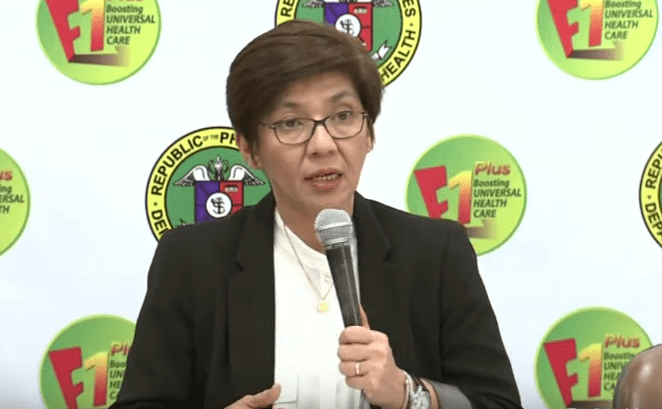
The Department of Health (DOH) projected that active coronavirus disease 2019 (Covid-19) cases in the National Capital Region (NCR) will rise even while the region is in its third enhanced community quarantine (ECQ).
Health Undersecretary Maria Rosario Vergeire said during a virtual briefing that the country is expecting the impact of the Delta coronavirus variant along with the spike of new Covid-19 infections.
The government reimplemented the stricter enhanced community quarantine (ECQ) in NCR due to the spread of the Delta variant.
“Kapag tayo ay nagpatupad ng mga higher community quarantine classification for these next four weeks, we will still reach around 18,000 active cases by the end of September,” she said.
“Kapag hindi natin ginawa ‘yan, magtutuloy tuloy lang ng GCQ with heightened restrictions ng apat na linggo, it would reach about 32,000 active case by the end of September,” she said.
Vergeire shared the Department of Health’s (DOH) projections on the number of active Covid-19 infections Metro Manila will face depending on the varying durations and levels of community quarantine by the end of September.
- One week GCQ with heightened restrictions + five weeks ECQ = 15,000 active cases
- One week GCQ with heightened restrictions + three weeks ECQ + two weeks MECQ = 42,000 active cases
- One week GCQ with heightened restrictions + two weeks ECQ + three weeks MECQ = 58,000 active cases
“Looking at our projections makikita natin na kahit tayo ay magsasagawa nitong paghihigpit ng ating mga quarantine classifications, we will still see the rise in the number of cases,” Vergeire said.
“Pero ang pinakaimportante kung masasabayan natin nang pag-prepare ng ating sistema at saka pagbabakuna ng mas marami, ang hope namin wala masyadong severe infections, wala masyadong maoospital at wala pong masyadong mamatay,” she added.
Even with the increasing number of Delta variant cases, the DOH cannot yet claim that a community transmission of the highly contagious variant is happening since genome-sequenced cases were still individually linked to one another.
However, she noted that the DOH is already doing its best “as if there is really community transmission.” Ronald Espartinez